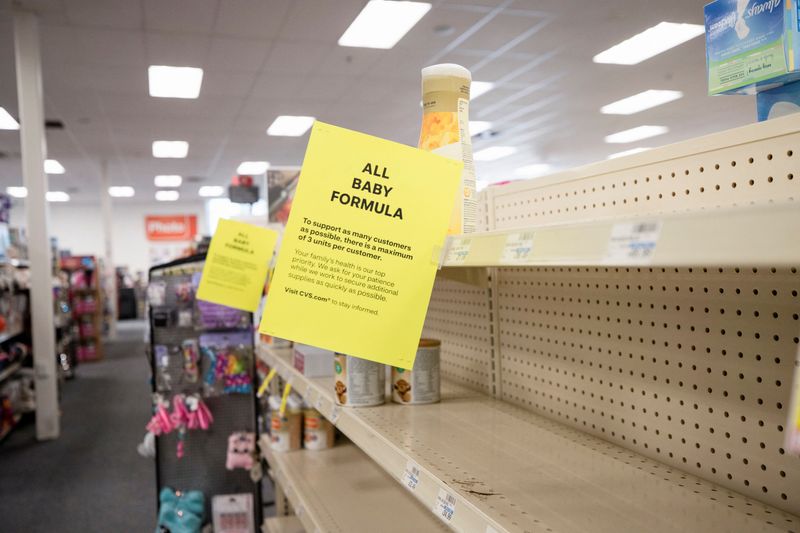
President Joe Biden’s administration announced actions to alleviate a statewide shortage of baby formula. It includes restarting the largest domestic manufacturing plant and expanding baby formula imports from overseas. It is in response to criticism from parents and legislators.
The FDA said it was simplifying its review procedure to make it easier for overseas makers to start shipping formulas to the United States.
In a statement, FDA Commissioner Robert Califf said, “We are hopeful this call to the global market will be answered and those international businesses will rise to the occasion to assist in bolstering the supply of products.”
According to Califf, those that can supply the largest shipments and rapidly demonstrate evidence that their formulae are safe and exceed US nutrition guidelines would likewise be the priority.
The imports announcement came only days after authorities announced an agreement that would enable Abbott Nutrition to reopen its Sturgis, Michigan, factory. It had shut down in February due to contamination concerns. Before resuming manufacturing, the corporation must update its safety regulations and procedures.
Neither action will have an immediate impact on the shortages. It has forced many parents to turn to the internet or food banks for formula.
Abbott estimates that it will take eight to 10 weeks for new products to be in stores after receiving FDA approval. The company has not set a timetable for resuming production.
Baby formula imports rise by 300%
According to administration officials, getting imports into the US supply chain might take many months. Imports of baby formula had already risen more than 300 percent from the previous year, according to FDA authorities.
The White House pressing on the FDA and formula companies to rapidly find methods to ease the shortfall previewed Monday’s statement last week. Outrage over the incident has quickly grown. Thereby, giving Republicans a new talking point to exploit against President Joe Biden ahead of the November elections.
The shortfall is the result of an Abbott recall in February. It likewise compounded continuing supply chain difficulties among formula manufacturers, leaving fewer options on store shelves across the country. Due to the shortfall, CVS and Walgreens have set limits on how many containers people can buy every visit.
Four infections were detected in babies who had taken powdered formula from the Michigan plant, prompting Abbott’s voluntary recall. Two of the four infants also died after having a rare bacterial infection.





